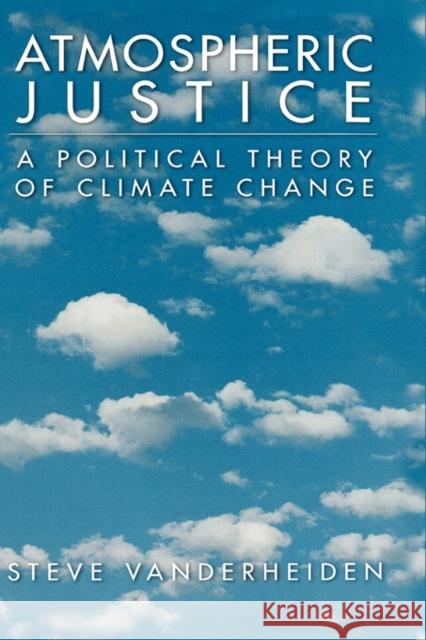Atmospheric Justice: A Political Theory of Climate Change » książka
topmenu
Atmospheric Justice: A Political Theory of Climate Change
ISBN-13: 9780195334609 / Angielski / Twarda / 2008 / 304 str.
Atmospheric Justice: A Political Theory of Climate Change
ISBN-13: 9780195334609 / Angielski / Twarda / 2008 / 304 str.
cena 375,23
(netto: 357,36 VAT: 5%)
Najniższa cena z 30 dni: 349,90
(netto: 357,36 VAT: 5%)
Najniższa cena z 30 dni: 349,90
Termin realizacji zamówienia:
ok. 30 dni roboczych.
ok. 30 dni roboczych.
Darmowa dostawa!
When the policies and activities of one country or generation harm both other nations and later generations, they constitute serious injustices. Recognizing the broad threat posed by anthropogenic climate change, advocates for an international climate policy development process have expressly aimed to mitigate this pressing contemporary environmental threat in a manner that promotes justice. Yet, while making justice a primary objective of global climate policy has been the movement's noblest aspiration, it remains an onerous challenge for policymakers.
Atmospheric Justice is the first single-authored work of political theory that addresses this pressing challenge via the conceptual frameworks of justice, equality, and responsibility. Throughout this incisive study, Steve Vanderheiden points toward ways to achieve environmental justice by exploring how climate change raises issues of both international and intergenerational justice. In addition, he considers how the design of a global climate regime might take these aims into account. Engaging with the principles of renowned political philosopher John Rawls, he expands on them by factoring in the needs of future generations. Vanderheiden also demonstrates how political theory can contribute to reaching a better understanding of the proper human response to climate change. By showing how climate policy offers insights into resolving contemporary controversies within political theory, he illustrates the ways in which applying normative theory to policy allows us to better understand both. Thoroughly researched and persuasively argued, Atmospheric Justice makes an important step toward providing us with a set of carefully elaborated first principles for achieving environmental justice.










